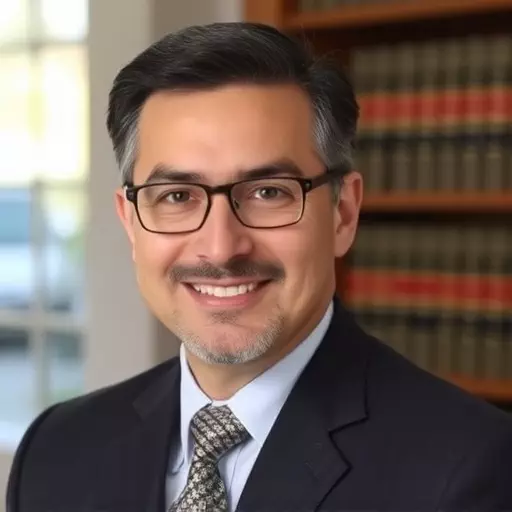This text introduces trusts as legal tools for managing assets with a focus on asset protection. It explains key roles within trusts (grantor, trustee, beneficiary) and highlights the importance of trust law in estate planning. The main message is that consulting an asset protection trust attorney in Palo Alto, California is crucial when deciding between revocable or irrevocable trusts, as these structures offer different levels of flexibility and asset protection against creditors and lawsuits. Understanding trust law basics allows individuals to make informed decisions about strategies tailored to their unique financial needs.
In the realm of estate planning, trusts serve as powerful tools for asset protection and wealth management. For individuals seeking to safeguard their assets, understanding revocable vs. irrevocable trusts is essential. This article, tailored by an asset protection trust attorney in Palo Alto, California, offers a comprehensive guide through trust law basics. We explore the flexibility of revocable trusts and permanent strategies provided by irrevocable trusts, helping you navigate the best choice for your asset protection needs in California. Discover vital asset protection strategies and make informed decisions with expert insights.
- Understanding Trusts: A Basic Overview of Trust Law
- Revocable Trusts: Flexibility and Control for Settlors
- Irrevocable Trusts: Permanent Asset Protection Strategies
- When to Choose Each: Considerations for Asset Protection in California
Understanding Trusts: A Basic Overview of Trust Law

A trust is a legal arrangement where one party, known as the grantor or settlor, transfers assets to another party, called a trustee, who manages and holds those assets for the benefit of a third party, often referred to as the beneficiary. Trust law, a niche yet crucial aspect of estate planning, provides a framework for these intricate financial relationships. In simple terms, it’s like assigning a responsible guardian for your assets, ensuring they’re managed according to your wishes after you’re gone or during times when you may be unable to make decisions.
When considering asset protection strategies, especially in dynamic legal landscapes, consulting with an asset protection trust attorney Palo Alto California is insightful. These attorneys specialize in guiding clients through the intricacies of trust law, helping them create structures that safeguard assets for current and future needs. Understanding trust law basics equips individuals with knowledge about revocable and irrevocable trusts, each offering distinct advantages for various financial scenarios, thereby enabling informed decisions regarding asset protection and distribution.
Revocable Trusts: Flexibility and Control for Settlors

Revocable trusts offer a high degree of flexibility and control for the settlor (the person creating the trust). This type of trust allows changes to be made or revoked at any time, as long as the settlor remains competent. It’s akin to keeping the keys to your financial kingdom, enabling you to make adjustments to your asset protection strategy as your needs change.
An asset protection trust attorney in Palo Alto, California can help set up a revocable trust, ensuring it aligns with the state’s trust law basics. This approach is popular among individuals seeking effective asset protection strategies, as it allows them to maintain control while also safeguarding their assets for future generations.
Irrevocable Trusts: Permanent Asset Protection Strategies

Irrevocable trusts are powerful tools for long-term asset protection and estate planning. Unlike revocable trusts that can be modified or revoked by the grantor, irrevocable trusts once created cannot be changed or terminated by the individual who establishes them. This permanence makes them an attractive option for individuals seeking robust asset protection strategies.
When you create an irrevocable trust in Palo Alto, California, you transfer legal ownership of specific assets into the trust. These assets are no longer under your direct control and become the property of the trust itself. Such trusts can offer significant advantages, including potential protections against creditors, lawsuits, and tax consequences. Asset protection trust attorneys in Palo Alto can help individuals navigate the complexities of trust law basics to design a tailored strategy that meets their unique needs and ensures long-term asset security.
When to Choose Each: Considerations for Asset Protection in California

When deciding between a revocable or irrevocable trust for asset protection in California, several factors come into play. A revocable trust, as the name suggests, allows the grantor (the person creating the trust) to modify or revoke the terms of the trust at any time. This type of trust is ideal when flexibility is key and the grantor still wants control over their assets during their lifetime. It’s a popular choice for those seeking estate planning options that provide both short-term and long-term asset protection, especially in dynamic financial scenarios where future changes are anticipated.
On the other hand, an irrevocable trust offers permanent protection by preventing the grantor from changing or accessing the trust assets directly. This is a more suitable option when the primary focus is on shielding assets from creditors, tax liabilities, or potential legal disputes. California’s trust law provides specific guidelines and implications for each type, and consulting with a local asset protection trust attorney in Palo Alto can be invaluable. They can guide individuals through the intricacies of trust law basics, ensuring their chosen strategy aligns with state regulations and effectively meets their asset protection goals.


